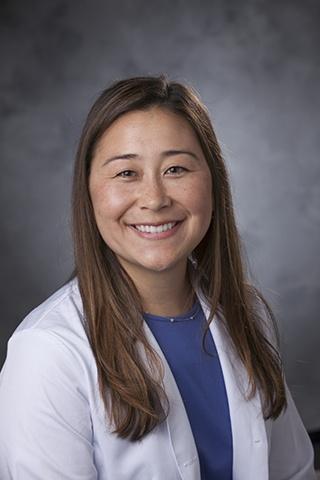I took one step backward, started to lose my balance, and knew it was all over. I fell to the ground as squeals of delight and laughter filled the air. My right foot just could not reach the red circle, and my chance for Twister victory had evaporated. It’s Sunday evening at the patient hostel in Mwanza, Tanzania — which means family dinner and game night.
For the past six weeks, I have had the privilege to rotate at the Bugando Medical Centre. Seated atop a hill, overlooking the city and Lake Victoria, this hospital is the largest referral specialty hospital in the Lake region of Tanzania, covering 13 million people. Therefore, when traditional medicine has been tried and local and regional hospitals have not been successful, patients come here for specialty care. While this sounds similar to Duke, it was very apparent, from my first day, that I was no longer in Durham, N.C.

I spent the majority of my time at Bugando caring for pediatric patients. I would start each morning with a conference summarizing the number of patients in each hospital ward, discussing the newly admitted patients, and reviewing the patients who had died the night before. It was very rare for the number of deaths to be zero.
Subsequently, we would round on the hospitalized patients with a teaching team similar to what we have at Duke — medical students, interns, residents and, on some days, a supervising attending physician. The residents would page through thick paper charts and skillfully examine patients, using their eyes, ears and hands to elicit information we commonly rely on imaging studies to tell us in America. Blood transfusions were ordered based on how pale a patient appeared, nutritional deficiencies were diagnosed based on skin findings, and family members were often responsible for administering medications to patients.
When we arrived at a treatment plan, the residents would fill out an order sheet of tests and medicines, give the sheet to the patient’s family, and wait for payment. Many times, we would have to prioritize the few tests the family could afford or wait days to administer medication until families could collect enough funds to cover the cost. When patients could afford the payments or were fortunate enough to have insurance, it was common for machines to be broken, medicines to be unavailable, or blood to be out of stock, and treatment would be delayed.
These instances were some of the most difficult for me. In spite of thorough exams and thoughtful physician plans, patients suffered because they simply could not afford to pay for their care, or the necessary medical resources were unavailable. This was a stark contrast to my experiences at Duke, where every state-of-the-art test and medical innovation can be ordered with the click of a button, and financial assistance can be navigated with the help of skillful social workers. I struggled to watch parents weigh the impact of paying for medical therapy that could save their child’s life or the burial costs if their child did not survive. I often wondered how resources could be so disparate in a world that feels increasingly interconnected and what are next steps are to close this gap in access to health care.
As my time at Bugando draws to close, I am humbled by my experiences and eager to explore innovative approaches to practicing global health. Every day, I learned in new and unexpected ways and am returning to the U.S. as a more informed, respectful, cost-conscious, and culturally competent physician. I saw pathology far more advanced then I have ever witnessed in the U.S., treated disease I had only studied in textbooks, and, over time, adapted to the resources available to us.
However, some of the powerful learning and lasting memories will not be the grapefruit-sized tumors, swollen bellies, or exotic infections, but rather our simple Sunday family dinners. During these evenings, over international cuisine and few raucous games of Twister, I slowly gained the trust of my patients and their families. In turn, they taught me about life in Tanzania, different tribal cultures and traditional healing practices, and their value systems and perspective on health care. As I transition back to life in America and medicine at Duke, I will carry this experience and the knowledge I gained into every patient encounter and will eagerly await my next opportunity to practice overseas.
Alexa Namba is chief resident with the Duke Family Medicine Residency Program. Email alexa.namba@duke.edu with questions.
This trip was made possible by generous sponsorship from the Hubert-Yeargan Center for Global Health. To learn more about resident training opportunities abroad, visit https://dukeglobalhealth.org.
Editor’s note: Duke Family Medicine residents guest blog every month. Blogs represent the opinion of the author, not the Duke Family Medicine Residency Program, the Department of Community and Family Medicine or Duke University.
